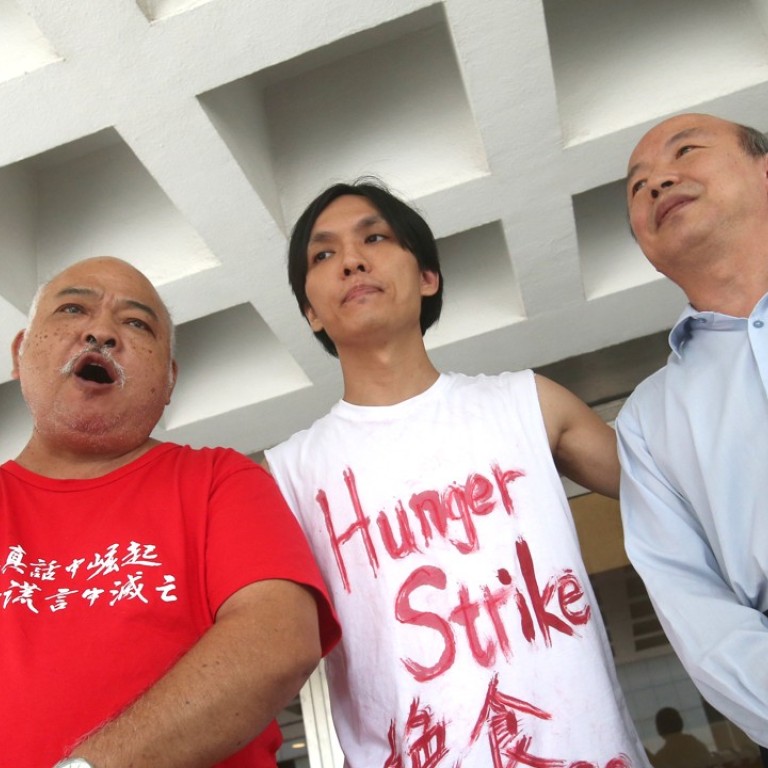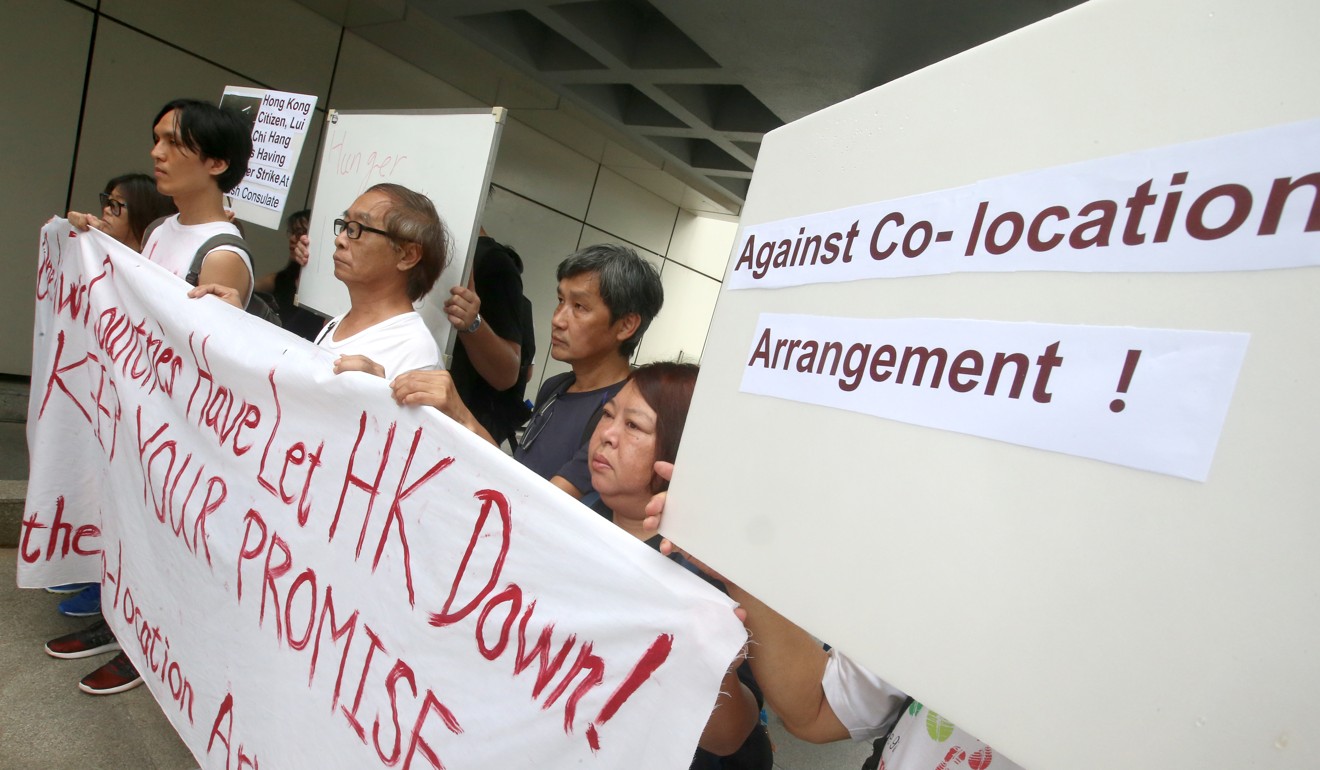
Let Hongkongers challenge joint checkpoint plan now before it’s too late, veteran lawyer argues
Democratic Party founding chairman claims proposal for high-speed rail link would ‘uplift and disapply’ local laws and city’s mini-constitution
Hong Kong residents challenging a controversial joint checkpoint arrangement that would apply mainland laws in the city should be allowed to step in now before it is too late, a veteran barrister has argued.
Beijing says Sino-British treaty on Hong Kong handover still binding but does not allow UK to interfere
It’s surprising anyone in the government could have thought of it
“It’s surprising anyone in the government could have thought of it,” he said of the proposal as he raised fears it could one day spread to other areas in Hong Kong.
The barrister is representing former civil servant Kwok Cheuk-kin in one legal challenge, and social worker Hendick Lui Chi-hang and retiree William Li Ka-lim in another. The three were asking the court to allow them to lodge judicial reviews against the joint immigration arrangement.
To succeed, they must demonstrate their case is “reasonably arguable”.
Two others – activist Tsang Kin-shing and retired photojournalist Cheung Tak-wing – withdrew their respective challenges but were also in court on Friday.
Lee denied that the matter was brought prematurely against a plan that has yet to receive final government approval. He claimed a court’s determination now could save officials money and having to go back to “the drawing board” if the plan was found at a later stage to be flawed.
Guangzhou in 48 minutes? Hong Kong critics of high-speed rail plan urge pulling TV commercial over claim
“It is clearly advantageous to all parties, including the residents of Hong Kong and overseas visitors,” he said of the present challenge.
The case centres on the government’s proposal announced two months ago in which a quarter of the West Kowloon terminus would be leased to the mainland as its designated port area. There, mainland officers would have full jurisdiction to enforce mainland laws, apart from a few exceptions, as opposed to local laws.
As a special administrative region of China, Hong Kong lacks authority to implement the plan to allow mainland laws to be applied in the city.
The legislative proposal could reach Beijing for approval before the end of the year, according to Permanent Secretary for Transport and Housing Joseph Lai Yee-tak.

Lee argued that in other provisions of the Basic Law, the city was guaranteed executive, legislative and independent judicial power.
If anything, he said, the power to be granted to Hong Kong under Article 20 should be “over and above the high degree of autonomy” the city already enjoyed, rather than reducing it.
“The Hong Kong government would be, in effect, uplifting and disapplying, amongst other things, the Basic Law, depriving our residents of the protection it is supposed to give them and the common law of course,” he said.
“I have yet to meet any person preferring to be protected by the mainland’s system rather than Hong Kong’s system.”
Lee added it would be “reasonably arguable” that the arrangement would violate the Basic Law as well as the spirit of the Sino-British Joint Declaration.
He slammed the government’s public consultation, claiming it offered opposing voices no prospect for a major change.
In his rebuttal, barrister Benjamin Yu SC, for the Hong Kong government, called the legal bid a bold attempt to pre-empt the city’s Legislative Council and the National People’s Congress, which he called “the highest organ of state power”.
The checkpoint co-location plan involves approval at two levels – from the National People’s Congress Standing Committee, and Hong Kong’s Legco. Yu said the local court should refrain from intervention because of this separation of power.
He also said it would be “premature” to challenge the plan at this stage, as the court would have to second-guess the mainland legislature’s action on the matter.
But Lee said he feared his clients would lose out on the chance for a judicial challenge because the case would be beyond the jurisdiction of local courts once it reached Beijing.
“The only time to challenge the arrangement, with all that it entails, is now,” he said.
Outside court, Hendick Lui, who was 142 hours into his hunger strike against the co-location plan as of 5pm on Friday, said the city’s “one country, two systems” policy had been encroached upon, and that people should dedicated more attention to this.
Mr Justice Anderson Chow Ka-ming will hand down his ruling on September 27.

